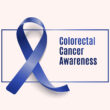The Screening That Saves Lives
May 3, 2022
Insight from Tom Nash
It’s been 20 years now since I lost a good friend, a great lawyer, and a thoughtful mentor.
I have never forgotten how we lost Mike—and how his wife and children lost Mike, who was only 63 years old and ready for a wonderful retirement. Mike died from colon cancer, and it pains me to think he never got a colonoscopy.
Often, individuals can have colon cancer but have few or no symptoms. Most cancer screenings can only find cancer once it is present, but colorectal screening—a colonoscopy (considered the “gold standard” for colorectal screening) or an at-home stool test—finds precancerous polyps that can be removed before they turn into cancer.
Screening can actually allow you to prevent this type of cancer from even developing. And if cancer is found, a screening can find it early when there is the best opportunity to successfully treat it.
Screening saves lives. A large medical study in 2018 confirmed this fact. Screening, by either method, is associated with a 61% reduction in colorectal cancer. There are now 1.5 million survivors of colorectal cancer in the U.S.
But not enough people are getting tested. Medical experts estimate that about 1 in 3 American adults between 50 and 75 are not getting tested as recommended. This equates to 23 million people.
The Affordable Care Act (ACA) requires both private insurers and Medicare to cover the costs of colorectal cancer screening tests. Furthermore, the law specifies that there should be no out-of-pocket costs for patients, such as co-pays or deductibles, for these screening tests.
Forty-five is the new 50—at least according to the Centers for Disease Control. The CDC’s new guidelines recommend that most people have their first colorectal cancer screening once they turn 45 years old.
Previous guidelines suggested a first screening at the age of 50. However, the new recommendations aren’t for everyone. African-American males have always been advised to start screening at 45 due to the higher risk of colorectal cancer among that population. For anyone who has had a parent or sibling diagnosed with the disease, the CDC says they should begin screening at age 40.
After lung cancer, colorectal cancer is the second most common cause of cancer deaths among men and women. The message is clear: Get screened. It could save your life.


